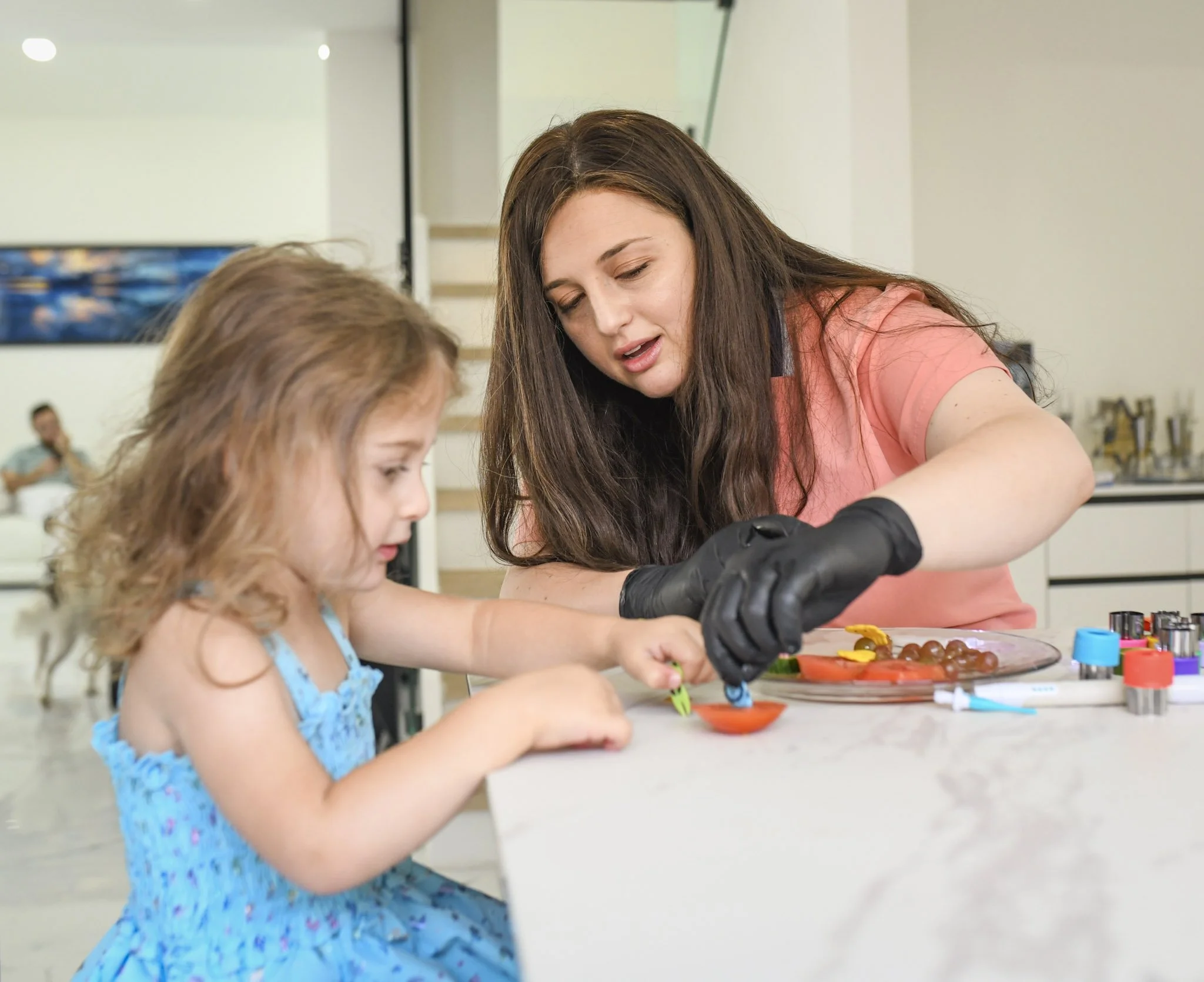
Our Approach
At Little Eaters, we believe feeding therapy should be evidence-based, child-led, and family-centered. Mealtimes aren’t just about nutrition—they’re about connection, trust, and growth. Our approach combines the latest research with play, responsiveness, and a whole-child perspective.
-
Research shows that pressure and negative mealtime experiences can increase food refusal and anxiety. Our therapists use a trauma-informed lens to create safe, supportive environments where children feel calm and secure. By reducing stress and building trust, we support long-term progress and positive mealtime experiences.
-
Play is one of the most effective ways for children to learn new skills. We incorporate play-based strategies to reduce anxiety, spark curiosity, and help children explore food in a non-threatening way. When therapy feels fun and engaging, children are more likely to try, taste, and enjoy new foods.
-
We follow responsive feeding practices and the principles of the Division of Responsibility (Ellyn Satter Institute):
Parents decide what, when, and where food is offered.
Children decide if and how much to eat.
This approach reduces mealtime battles, builds trust, and supports children’s ability to self-regulate eating habits.
-
For picky eaters or children with feeding disorders, we use food chaining, an evidence-based method that introduces new foods through small, systematic steps. By starting with foods similar in taste, texture, or appearance, children gradually build confidence and expand their diets—without stress or pressure.
-
Feeding challenges can stem from many areas, including:
Oral motor skills
Sensory sensitivities
Airway or breathing issues
Tethered oral tissues (tongue or lip ties)
We assess all of these areas to design therapy plans tailored to your child’s unique needs. Our goal is not just to treat symptoms, but to address the root causes of feeding difficulties.
-
Parent involvement is essential for long-term success. Research confirms that family-centered care leads to better outcomes. That’s why we coach parents in real time, offering practical tools and strategies that fit into everyday routines. Together, we make mealtimes calmer, more connected, and more nourishing for the whole family.

